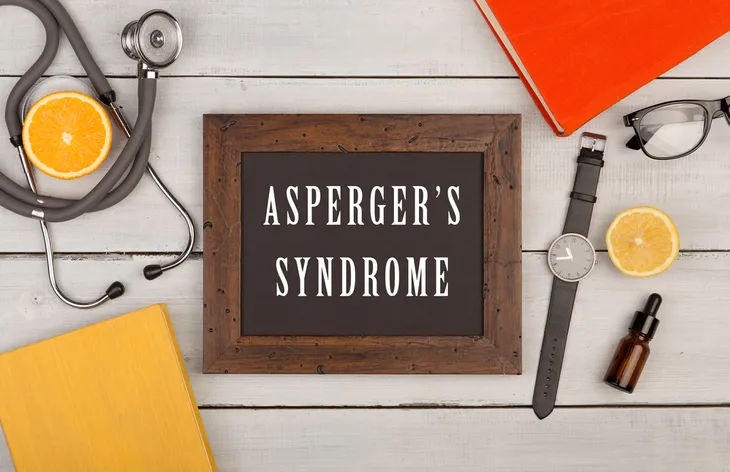- Asperger’s is a form of autism that can cause difficulties with social interaction and communication.
- Diagnosing Asperger’s in adults can be a challenge because there is no specific test or diagnostic criteria for adults.
- Be on the lookout for the signs and contact your doctor if you think you have Asperger’s. They’ll likely refer you to a specialist, such as a psychiatrist or a psychologist, that can assess your symptoms.
Asperger’s syndrome is a developmental disorder that can cause difficulties with social interaction and communication. While it’s often diagnosed in childhood, sometimes it can go undetected, especially if it’s mild.
While adults with Asperger’s can often thrive and live healthy, normal lives, they can also face challenges. The best thing to do is to see a doctor for a proper diagnosis but in the meantime here’s a look at the common signs of Asperger’s in adults. We’ll also look into what causes it, how it’s diagnosed, and what treatment options are available.
What Is Asperger’s Syndrome?
In short, Asperger’s is a form of autism. While it used to be its own unique diagnosis, in 2013 the American Psychiatric Association combined all forms of autism under one diagnosis known as an autism spectrum disorder (ASD). Today, many individuals, including doctors, still use the term Asperger’s but it will always be medically diagnosed as ASD. So, what is it exactly?
According to Medical News Today, autism is a developmental disorder characterized by “difficulties in communication and social interaction and characteristic patterns of behavior.” The source says Asperger’s tends to be on the mild end of the autism spectrum (also known as level 1 ASD) and is considered a high-functioning form of autism.
Signs of Asperger’s in Adults
Asperger’s is often diagnosed in childhood, however, sometimes if it’s mild it can go undiagnosed. Asperger’s can cause an array of challenges for adults. They may struggle with verbal and nonverbal communication, social interactions, emotions, and behavior.
It’s important to note that everyone experiences autism differently. Some individuals may experience only a couple of symptoms while others may experience many. Medical News Today also says that some adults with Aspberger’s also learn to adapt or they learn how to hide their symptoms. Let’s take a deeper look at some of the symptoms to look out for next.
Communication Difficulties
Adults with Asperger’s may have difficulties with verbal communication, meaning it may be hard for them to understand and process language. They may also have difficulty with talking. Be on the lookout for repetitive or robotic speech as well as difficulty moderating their voice, such as not lowering their voice in a library.
But to make matters more confusing, adults with Asperger’s may also display the opposite and have excellent verbal skills with a great vocabulary, especially in areas they’re interested in.
Aspergers may also lead to challenges with nonverbal cues, such as facial expressions, hand gestures, and body language. They may also lack eye contact when talking to another person.
Emotional Symptoms
Adults with Asperger’s may find it difficult to deal with their emotions. As a result, this may cause the individual to react inappropriately. They may even have emotional outbursts.
Additionally, another symptom of Asperger’s is having difficulty with empathy. It can be hard for them to understand and share feelings with others.
Behavioral Symptoms
Adults with Asperger’s may also display an array of behavioral symptoms. For starters, Healthline says they may engage in repetitive behavior, such as doing the same routine before work or needing to open a door a certain way. They also often respond negatively to change. But keep in mind that these types of behaviors can be signs of other disorders too.
ASD can also cause an abnormal response to sensory stimuli, meaning they may be overly or underly sensitive to light, sound, or touch. For example, the individual may become irritated by a sound that doesn’t seem to bother other people.
Lack Friendships
Due to the symptoms we just discussed, it’s not uncommon for adults with Asperger’s to lack close friendships or have difficulty maintaining friendships. Medical News Today explains that a combination of having difficulty communicating as well as processing other people’s emotions and feelings can make it hard to make meaningful friendships last.
The source also notes that because of these symptoms, the individual may also prefer solo activities over activities that require teams. This can also make it hard to form friendships and sometimes it can prevent them from being a team player in the workplace.
Other Symptoms of Asperger’s in Adults
Emotional, behavioral, and communication symptoms aren’t the only signs to look out for. Asperger’s can cause other symptoms in adults too such as obsession. It’s common for individuals to become hyper-focused, usually about a specific topic. They may also insist on talking about it with others. While this symptom can be particularly beneficial in the workplace, it can also lead to greater problem-solving skills, explains Medical News Today.
Another symptom to look out for is coordination problems. Adults with Asperger’s may struggle with motor coordination. In fact, Healthline says this symptom is significantly more common in adults with ASD. This symptom may show up as clumsiness or difficulty walking but it can also affect fine motor skills such as writing or buttoning clothing.
What Causes Asperger’s Syndrome?
Unfortunately, there is no single known cause of ASD. However, Healthline notes that changes in the brain are responsible but what causes these changes are unknown.
While the cause is currently unknown, researchers have discovered a few factors that may increase an individual’s risk of developing autism. For starters, genetics may play a role, meaning if a close family member has ASD, you or your child may be at risk too. Males are also more likely to receive an ASD diagnosis. The source also notes that exposure to environmental toxins (like chemicals or viruses) may also increase your risk.
Potential Complications
While many adults with Asperger’s can thrive and hold steady jobs, unmanaged ASD can pose some challenges. Some potential complications in adults include social isolation, difficulty making and keeping friends, as well as difficulty with romantic relationships.
Untreated ASD may also lead to low self-confidence, anxiety, and depression. Millcreek Behavioral Health says, “generally speaking, the earlier Asperger’s syndrome is treated, the more positive the outcomes.” If you believe you have undiagnosed ASD, contact your doctor.
 fizkes / Shutterstock
fizkes / ShutterstockDiagnosing Asperger’s in Adults
Diagnosing Asperger’s in adults can be a challenge because there is no specific test or diagnostic criteria for adults, explains Healthline. The source also points out that it’s becoming less common for individuals to reach adulthood without an ASD diagnosis as most cases are diagnosed in early childhood. But that doesn’t mean it’s impossible.
If you suspect you may have ASD, contact your doctor. They may refer you to a specialist (such as a psychiatrist or psychologist) that can assess your symptoms and help determine if you have ASD.
Treating Asperger’s in Adults
While there is no cure for Asperger’s syndrome, there are treatment options available that can help adults cope with their symptoms and challenges. One option is medication. Your doctor may prescribe medication to help treat symptoms like anxiety or hyperactivity. But it’s important to never self-diagnose or self-medicate, always follow the guidance of your medical team.
It may also be beneficial to join support groups where you can lean on people who are going through a similar situation. Support groups can be both online and in-person. Talk to your doctor for resources or reach out to friends and family for help.
Treatment: Therapy
Treatment may also be in the form of therapy, such as speech therapy. A speech therapist can help treat repetitive and robotic speech by teaching the individual “how to speak with inflection and how to moderate their pitch,” explains Medical News Today.
While many adults with ASD can maintain steady jobs, some have difficulty. Healthline says vocational therapy is another treatment option that can help. The goal of a vocational therapist is to help you find solutions to challenges you face at work.
Finally, your doctor may also recommend cognitive behavioral therapy (CBT). During CBT, a therapist can help change patterns of thinking to help change feelings and behaviors. This may help treat the emotional symptoms of ASD. CBT may also help you learn social skills which in turn can help you connect with others.














